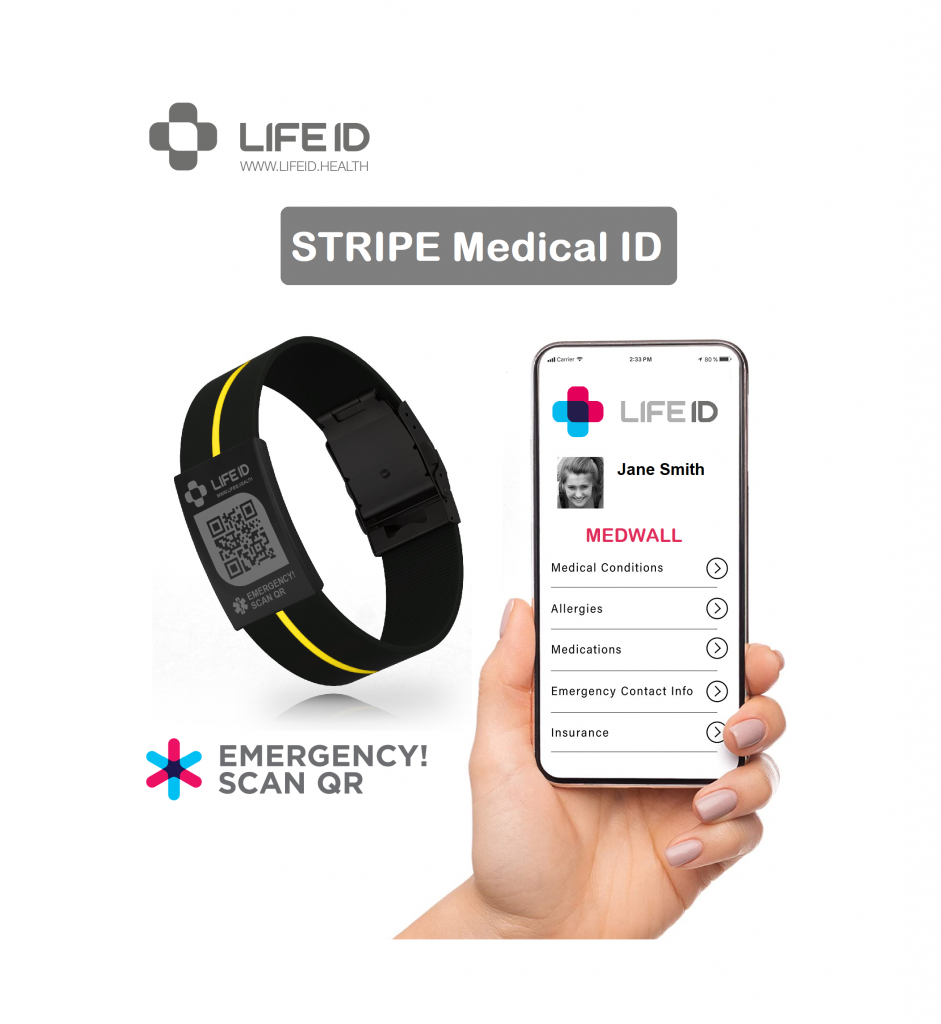
What could cause chest pain?
Chest pain can stem from a heart problem, but other possible causes include a lung infection, muscle strain, a rib injury, or a panic attack. Some of these are serious conditions and need medical attention.
Chest pain is the second biggest cause of emergency room (ER) visits in the United States, leading to over 8 million ER visits every year. Worldwide, chest pain affects 20–40% of the general population.
In this article, learn about some possible causes of chest pain and other symptoms that can help identify them.
Heart problems
Share on Pinterest
Rawpixel/Getty Images
Various heart problems can cause pain in the chest.
1. Heart attack
Chest pain is one of the main symptoms of a heart attack. The others are:
- pain in the jaw, neck, or back
- lightheadedness or weakness
- pain in the arms or shoulders
- shortness of breath
Females, particularly, may also experience sudden tiredness, nausea, or vomiting.
If someone thinks they are having a heart attack, they should seek emergency medical help. The quicker a person can get to the ER, the quicker treatment can begin.
Getting prompt treatment increases a person’s chances of survival and potentially reduces the severity of the damage to the heart.
How do you recognize the signs of a heart attack?
2. Myocarditis
Myocarditis is inflammation of the heart muscle, resulting in symptoms that are similar to a heart attack, such as:
- chest pain
- shortness of breath
- fast or irregular heartbeat
Myocarditis usually results from a viral infection, according to the British Heart Foundation.
What is an inflamed heart?
3. Angina
Angina feels like squeezing pain or pressure on the chest. It occurs when not enough blood is getting to the heart. A person may also feel pain in the:
- shoulder
- back
- neck
- arms
- jaw
Angina can feel like indigestion.It is the most common symptom of coronary artery disease.
4. Aortic aneurysm and dissection
Aortic dissection is a tear or separation of the inner layers of the aorta, the main artery that leads from the heart. This can lead to a buildup of blood in the artery.
An aortic aneurysm refers to an enlargement in the aorta. Both conditions can cause the aorta to rupture or burst.
Aortic dissection and a severe aortic aneurysm are emergencies and require immediate medical help. A stable aortic aneurysm may not need emergency treatment.
5. Coronary artery dissection
Coronary artery dissection occurs when there is a tear in the coronary artery wall. If the innermost layer tears, blood can seep through and build up, causing a bulge. It can lead to a heart attack.
Sudden intense pain that appears to “tear” across the chest, neck, back, or abdomen can be a symptom of coronary artery dissection.
This is a rare but serious condition. The American Heart Association (AHA) notes that experts do not know exactly why it happens, but it can affect people without the usual risk factors for heart disease.
6. Pericarditis
Pericarditis is inflammation of the sac around the heart.
It can result in:
- severe chest pain behind the breastbone
- a buildup of fluid around the heart
- cardiac tamponade, when fluid presses on the heart
- obstructive shock, when the heart cannot fill
- with blood effectively
Possible causes may be infections, malignancy, autoimmune disease, metabolic abnormalities, trauma, and medications. In up to 90% of cases, no clear cause can be found despite extensive testing.
7. Mitral valve prolapse
A mitral valve prolapse is a valve in the heart that is unable to close fully. In mild cases, this condition may have no obvious symptoms.
If symptoms occur, they include:
- rapid heartbeat
- chest discomfort
- fatigue
8. Hypertrophic cardiomyopathy
Hypertrophic cardiomyopathy is the heart growing too thick due to genetic factors. The thickening of the heart prevents blood from flowing from the heart properly, causing the muscle to work very hard to pump blood.
Symptoms of hypertrophic cardiomyopathy include:
- chest pain
- changes in heart rhythm
- shortness of breath
- dizziness
- lightheadedness
- fainting
- swelling in the feet, ankles, legs, and abdomen
A person who notices this should seek medical advice, as it can worsen over time and lead to other complications, such as blood clots and heart failure.
Lung problems
Various lung problems can cause chest pain.
9. Pulmonary hypertension
Pulmonary hypertension is high blood pressure in the arteries that carry blood to the lungs. In some cases, this may result in chest pain.
It can happen for various reasons and can result in:
- breathlessness and faintness when exercising
- shortness of breath when bending down
- fatigue
- swelling due to fluid buildup
Pulmonary hypertension is not usually immediately life threatening, but it does need medical attention.
10. Pleurisy
Pleurisy is inflammation of the membrane that covers the lungs.
Symptoms include:
- chest or shoulder pain
- pain is worse when breathing, coughing, sneezing, or moving the trunk or chest wall
- pain may be dull, aching, or “catching”
Without treatment, it can lead to life threatening complications.
11. Pneumonia
Lung infections such as pneumonia can cause sharp or stabbing chest pain, especially when breathing deeply or coughing.
Other symptoms of pneumonia include:
- fever, sweating, and chills
- coughing up phlegm, colored green, yellow, or containing blood
- shortness of breath
- bluish tinge to the lips or fingertips
- rapid, shallow breathing
- low appetite, low energy, and fatigue
- nausea and vomiting (in young children)
- confusion (in older people)
A person with breathing difficulty needs immediate medical attention, as pneumonia can be life threatening.
Find out more about bacterial pneumonia and viral pneumonia.
12. Pulmonary embolism
A pulmonary embolism is a blood clot getting trapped in an artery feeding blood to the lungs.
Common symptoms include:
- chest pain, especially when breathing in
- back pain
- shortness of breath
- coughing up blood
- leg pain or swelling
- sweating
- lightheadedness, dizziness, or fainting
- blue tinge to lips or nails, known as hypoxia
Pulmonary embolisms can be life threatening without urgent treatment.
13. COVID-19
A person with COVID-19 may experience respiratory symptoms, pain, or pressure in the chest.
A person should seek immediate medical help if they have:
- persistent pain or pressure in the chest
- breathing difficulty
- blue lips or nails
- new confusion
- difficulty staying awake
Other causes
Here are some other reasons chest pain might occur.
14. Panic attack
A panic attack is a sudden attack of panic or fear. Often a person does not know why it happens, but it may be a symptom of a condition known as panic disorder.
The individual may experience:
- chest pain
- a rapid heartbeat
- fear
- nausea
- dizziness
- sweating
- shaking and trembling
The symptoms can resemble those of a heart attack.
A doctor may prescribe drugs, counseling, or both to help manage panic disorder.
15. Hiatal hernia
A hiatal hernia is the stomach pushing up into the chest. This type of hernia is common and may not cause any symptoms.
However, if the top of the stomach pushes into the lower part of the chest after eating, it can cause symptoms of GERD.
These include:
- chest pain
- reflux
- heartburn
In some cases, a hiatal hernia may need surgery.
16. Costochondritis
Costochondritis is inflammation of the cartilage of the rib cage. It can cause pain and tenderness in the chest. The pain may start suddenly.
Costochondritis pain may get worse when:
- lying down
- doing exercise
- breathing deeply
- coughing or sneezing
17. Muscle strain
Inflammation of the muscles and tendons around the ribs can result in persistent chest pain. If the pain becomes worse with activity, then it may be a symptom of a muscle strain.
Learn more here about a pulled muscle in the chest.
18. Injured ribs
Injuries to the ribs, such as bruises, breaks, and fractures, can cause chest pain. A person may have heard a crack or felt extreme pain at the time of injury if they have a broken rib.
A person with a fractured rib may have:
- pain or discomfort in the chest or back
- an inability to breathe deeply
- unusual movement in the chest wall
When to contact a doctor
It is always best to contact a doctor if chest pain comes on suddenly, especially if taking anti-inflammatory medications does not ease symptoms.
A person should seek emergency medical help if they have:
- pain that spreads to the arms, back, neck, or jaw
- tightness or heaviness in the chest
- pain that started with nausea, vomiting, sweating
- difficulty breathing or changes in breathing rate
- blue lips or nail beds
- severe pain that lasts longer than 15 mins
- confusion
In some cases, chest pain can be life threatening. For this reason, a person should not ignore it.
Frequently asked questions
Here are the answers to some questions people often ask about chest pain.
How do I know if my chest pain is serious?
Chest pain that comes on suddenly may be serious. Alongside this, other serious symptoms include pain that spreads to the arms, back, neck, or jaw, shortness of breath, tightness in the chest, or pain that starts with nausea, vomiting, and sweating.
Any person experiencing chest pain should consult a doctor.
What can cause chest pain besides a heart attack?
Some common causes of chest pain, besides a heart attack, include myocarditis, angina, pneumonia, and Covid-19.
Can you have chest pain without a heart attack?
Yes, it is possible for a person to have chest pain without a heart attack being the cause. Indeed, a person’s chest may be hurting for many reasons, ranging from muscle strain to a panic attack.
However, it is best to seek medical advice for any type of chest pain, as some causes can have severe consequences.
What causes chest pain if an EKG is normal?
An electrocardiogram (EKG) can offer important information, for instance, about possible narrowing of the coronary arteries, a heart attack, or an irregular heartbeat like atrial fibrillation.
However, if a person’s electrocardiogram (EKG) results are normal, it is possible that chest pain may be caused by conditions that are non-cardiovascular in nature. These include a panic attack, injured ribs, pancreatitis, or esophageal spasms.
What are the 4 signs of an impending heart attack?
Four signs of an impending heart attack include:
- pain in the jaw, neck, or back
- lightheadedness or weakness
- pain in the arms or shoulders
- shortness of breath
People with these symptoms should seek immediate medical help.
Takeaway
Chest pain can happen for many reasons. Often, the other signs that occur with it will give an idea of why chest pain occurs.
However, any severe chest pain needs urgent medical attention, especially if it is radiating to the arm, back, or neck, if the heart rate changes, or if the person has trouble breathing.
Anyone with concerns about chest pain should seek medical advice to rule out life threatening causes and obtain suitable treatment.
ABOUT LIFE ID
The Ultimate Medical ID. More Than Just A Few Engraved Lines: Many health conditions require more than a couple words to explain. Each LIFE ID product links to your online profile where you can store unlimited medical information for free
Use Coupon Code 10BUCKSOFF And Get $10 Off Any LIFE ID Today!
HOW LIFE ID WORKS
LIFE ID VIDEOS

